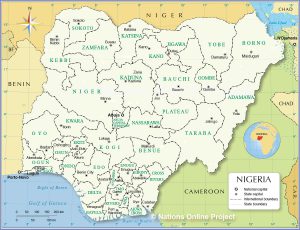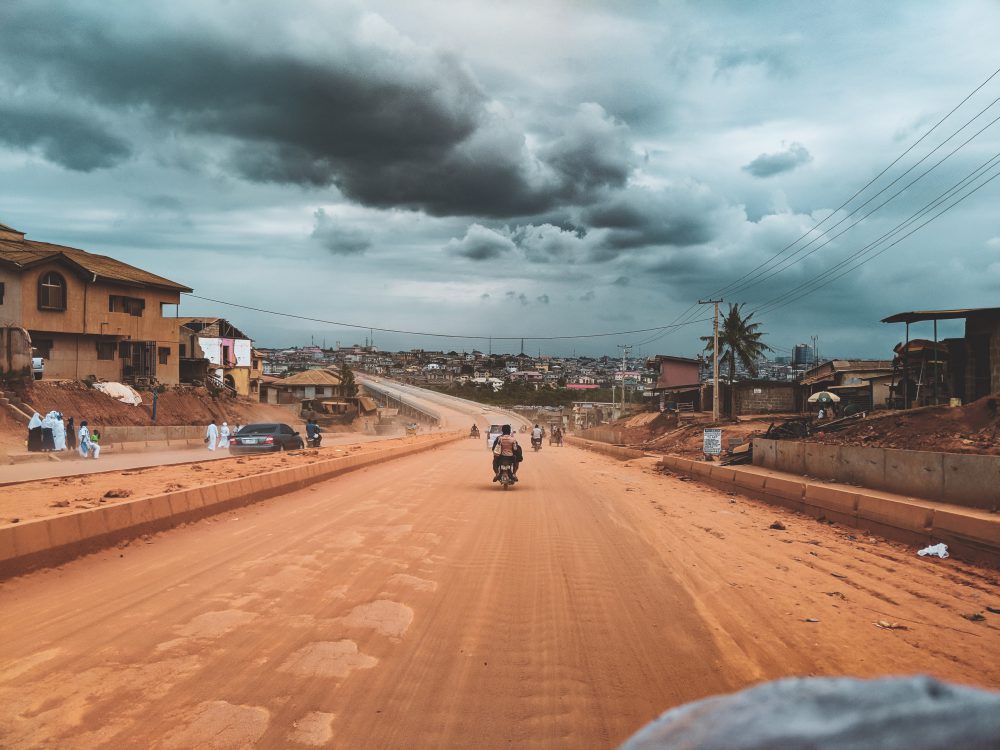By John Oghenemarho
I recently moved into a house fresh from renovation and reconstruction. Shortly after moving in, poorly hidden faults and new issues began to rear their ugly and annoying heads. The most annoying of these was a leaking roof refractory to all forms of intervention.
One cool Saturday afternoon as it rained down in the bucketloads, and the rhythmic “drip-drip” of the leaking roof gave a melody to the monotonous din of the pouring rain, I asked myself, “Why is it even still raining at this time of the year?!”
World over, similar questions are being asked. Why are the seasons becoming more erratic, like a peri-menopausal woman’s period? Why are there more tropical storms and hurricanes brewing on the oceans like never before? Why are wildfires ragingly insatiable like never before? Why are temperature records all around the world being shattered to smithereens?
There is a scientifically proven answer to these questions: Climate GLO: 923089168344379 Change. Climate change refers to the average rise in global temperatures majorly due to global warming which is largely driven by the emission of greenhouse gases (such as carbon dioxide and methane).
These greenhouse gases are mostly emitted from human activities with fossil fuel burning (e.g. crude oil, petroleum, and all other derivatives) being an important source of these gases. Other sources include deforestation, industrial emissions, and some agricultural processes.
Normally, the earth reflects about 30% of the energy (i.e. light and heat) that it gets from the sun back into space. This helps to cool down our planet. But these greenhouse gases upon emission, stay in the upper parts of earth’s atmosphere where they exercise a shielding effect, preventing as much as 90% of the 30% that normally should have been reflected, from going back into space. The trapped heat goes ahead to warm up land, sea and sky- resulting in global warming.
In recognition of the future threat that is Climate Change, world leaders gathered in Paris to put pen to paper to sign the Paris Agreement. This agreement is a voluntary commitment within the United Nations Framework Convention on Climate Change (UNFCC) to respond to global Climate change by keeping global temperature rise below 2°C this century and to pursue efforts to further increase the drop to below 1.5°C.
Climate change is a global problem, but with Nigerian peculiarities. According to Odjugo et al (2013), only 22% of Nigerians have substantial knowledge of climate change and how it affects us. This means that the majority of Nigerians do not know that climate change is behind the increasingly erratic and unprecedented quantity of rainfall which has led to widespread flooding, and loss of livelihoods.


Source: Nations Online Project
This means that almost 80% of an estimated 200 million-strong population are not aware of the role climate change plays in rising sea levels and gradual submersion of our coastal lands, or the role it plays in sponsoring prolonged periods of droughts in the already beleaguered North, or of its hand in the slow but sure disappearance of Lake Chad and other similar lakes in Northern Nigeria. This means that a majority of Nigerians are not cognisant of a fermenting keg of palm wine that will most certainly blow up in the faces of our beautiful ones that are yet to be born.
In Nigeria, the biggest hurdle in the efforts against climate change is the overwhelming unawareness of the issue of climate change amongst the populace. For us, this ignorance is most certainly not bliss, it is a cursed nightmare we must wake up from.
Nigeria is a signatory to the UNFCC Paris agreement. There is little chance that the government will actively follow through with the agreements unless there is some pressure from the Nigerian people who put the government into place.
Hence, the average Nigerian needs to become aware of the threat that climate change portends: the threat to the sustainability of human life across generations. It is when the issue of climate change gains a level of traction amidst public discourse, that the government will begin to get the motivation they need to make and enforce policies that will reduce our emissions.
The average Nigerian also needs to learn about the small but important things they can do to make their own contributions to the crusade against global warming and climate change. Reduce, reuse and recycle are all terms Nigerians need to understand and get comfortable with.
In cities and countries around the world, tough decisions are already being made to significantly cut down emissions. We can not afford to be found pulling in the other direction. Nigeria is brimming with resourceful people who are never out of ideas. I believe that the Nigerian people have a lot to offer in the global endeavour against climate change.
I do hope that the rains stop soon though. I would hate for the POP finishing to come crashing down me one day.





























Intelligent Article!!! Garnished with a lot of Grammar. I sure did learn some few words from it. Welldone!!
Intelligent Article!!! Garnished with a lot of Grammar. I sure did learn a few new words from it!!!